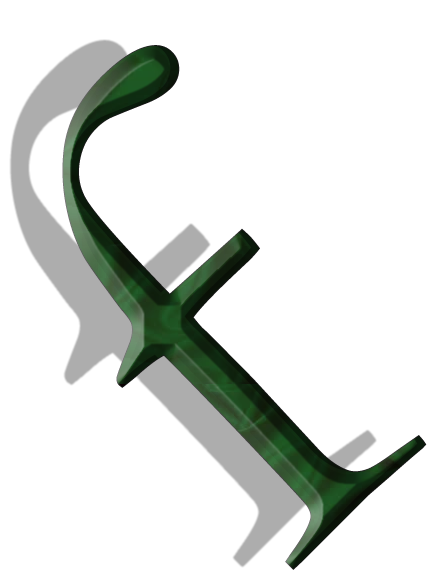AUTONOMY AND THE USE OF DIGITAL RESOURCES IN ENGLISH LANGUAGE TEACHING AND LEARNING
DOI:
https://doi.org/10.22481/folio.v13i1.8289Keywords:
digital resources; English language teaching; autonomy; complexity theory, digital resources, English language teaching, autonomy, complexity theoryAbstract
Downloads
References
ANDERSON, Terry. Modes of interaction in distance education: recent developments and research questions. In: MOORE, Michael Grahame; ANDERSON, William G. (Orgs.) Handbook of distance education. Lawerence Enbawm Associates, 2003.
BENSON, Phil. The philosophy and politics of learner autonomy. In: BENSON, Phil; DICKINSON, Leslie. Self-instruction in language learning. Cambridge: Cambridge University Press, 1987.
BRUCE, Bertram C.; HOGAN, Maureen P. The disappearance of technology: toward and ecological model of literacy. In: REINKING, David; MCKENNA, Michael C.; LABBO, Linda D.; KIEFFER, Ronald D. (Orgs.) Handbook of literacy and technology: transformations in a post-typographical world. Hillsdale: Erlbaum, 1999.
DICKINSON, Leslie. Self-instruction in language learning. Cambridge: Cambridge University Press, 1991.
FRANCO, Claudio de Paiva. Autonomia na aprendizagem de inglês: um estudo com nativos digitais sob as lentes do caos e da complexidade. 2013. 201f. Tese (Doutorado em Estudos Linguísticos) – Faculdade de Letras, Universidade Federal de Minas Gerais. Belo Horizonte, 2013. Disponível em: http://claudiofranco.com.br/media/tese-claudiofranco.pdf. Acesso em: 18 dez. 2020.
FREIRE, Paulo. Pedagogia da autonomia – saberes necessários à prática educativa. 35. ed. Rio de Janeiro: Paz e Terra, 2007.
HAYTHORNTHWAITE, Caroline; Community development among distance learners: temporal and technological dimensions. Journal of Computer-Mediated Communication, v. 6, i. 1, 2000. Disponível em: https://doi.org/10.1111/j.1083-6101.2000.tb00114.x Acesso em: 18 dez. 2020.
HOLEC, Henri. Autonomy and foreign language learning. Oxford: Pergamon, 1981.
HOLEC, Henri. Learner training: meeting needs in self-directed learning. In: ALTMAN, H. B.; JAMES, C. V. (Orgs.) Foreign language learning: meeting individual needs. Oxford: Pergamon, 1980.
HOLEC, Henri. On autonomy: some elementary concepts. In: RILEY, P. (Org.) Discouse and learning. London: Longman, 1985.
LARSEN-FREEMAN, Diane. Chaos/complexity science and second language acquisition. Applied Linguistics, Oxford, v. 18, n. 2, 141-165, 1997.
LITTLE, David. Learner autonomy: definitions, issues and problems 1. Dublin: Authentic, 1991.
OXFORD, Rebecca L. Toward a more systematic model of L2 learner autonomy. In: PALFREYMAN, David; SMITH, Rirchard C. (Orgs.) Learner autonomy across cultures: language education perspectives. Basingstoke: Palgrave Macmillan, 2003. Disponível em: https://doi.org/10.1057/9780230504684_5. Acesso em: 18 dez. 2020.
PAIVA, Vera Lúcia Menezes de Oliveira e. Autonomia e complexidade. Linguagem e Ensino, Pelotas, v. 9, n. 1, 77-127, 2006. Disponível em: https://periodicos.ufpel.edu.br/ojs2/index.php/rle/article/view/15628. Acesso em: 18 dez. 2020.
PAIVA, Vera Lúcia Menezes de Oliveira e. A www e o ensino de Inglês. Revista Brasileira de Linguística Aplicada, Belo Horizonte, v. 1, n. 1, 93-116, 2001. Disponível em: http://www.veramenezes.com/www.htm. Acesso em: 18 dez. 2020.
PENNYCOOK, Alastair. Cultural alternatives and autonomy. In: BENSON, Phil: VOLLER, Peter (Orgs.) Autonomy and independence in language learning. New York: Addison Wesley Longman, 1997.
ROGERS, C. R. Freedom to learn. Colombus: Charles E. Merril, 1969.
TAVARES, Kátia Cristina do Amaral; FRANCO, Claudio de Paiva. Ensino de leitura em língua portuguesa: de concepções teóricas a propostas de atividades didáticas. In: MOLLICA, Maria Cecília (Org.) Linguagem em Contextos. Rio de Janeiro: Editora 7Letras, 64-77, 2014.
VOLLER, Peter (Org.) Autonomy and independence in language learning. New York: Addison Wesley Longman, 1997.
WARSCHAUER , Mark. A developmental perspective on technology in language education. TESOL Quarterly, v. 36, n. 3, p. 453-475, 2002. Disponível em: http://education.uci.edu/uploads/7/2/7/6/72769947/developmental1.pdf. Acesso em: 18 dez. 2020.
Downloads
Published
How to Cite
Issue
Section
License
Copyright (c) 2021 Fólio

This work is licensed under a Creative Commons Attribution-NonCommercial 4.0 International License.






